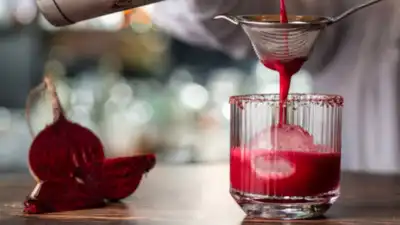Beetroot juice might look like the ultimate health elixir, bright, bold, and totally Instagrammable. And to be fair, it’s earned quite the reputation. From lowering blood pressure to boosting stamina, this deep-red drink has become a favorite in wellness circles. But if your kidneys aren’t in tip-top shape, it might be time to pump the brakes.
Anyone dealing with chronic kidney disease (CKD) or even borderline kidney issues. Beet juice isn’t as innocent as it looks.
Beetroot juice: The health world’s darling
Let’s start with why beetroot juice became a big deal in the first place.
Beets are loaded with nitrates—not the bad kind, but the natural ones your body turns into nitric oxide. That stuff helps widen your blood vessels, which can lower blood pressure, improve circulation, and give your organs (including your brain!) a better oxygen supply.
Beets also bring a solid nutrition profile:
- Folate (great for your red blood cells)
- Potassium (important for nerves and muscles)
- Vitamin C (anti-inflammatory bonus)
- Betalains (those deep red pigments that double as antioxidants)
With all that going on, it’s no surprise that beet juice shows up in everything from smoothies to pre-workout drinks. But here’s where things get a little sticky—especially for your kidneys.
The problem: Oxalates, potassium, and kidneys
Beetroot juice may be a powerhouse, but it’s not a one-size-fits-all drink.
First, oxalates. Beets are full of them. Oxalates are naturally found in foods like spinach, almonds, and—yep—beets. And when oxalates bind with calcium in your body, they can form kidney stones. If you’ve ever had one, you know that’s a pain you don’t want to relive.
Then there’s potassium. It’s an essential mineral, but only when your kidneys are working properly. In people with CKD, the kidneys struggle to filter out extra potassium, which can build up in the blood. And that’s dangerous. We’re talking muscle weakness, irregular heartbeats, and in serious cases, heart failure. Just one cup of beet juice can have 400 to 500 mg of potassium—and that’s a lot if your kidneys are already on strike.
In the early stages of CKD (Stage 1 or 2), your body might still manage okay. But as kidney function drops—especially by Stage 3 and beyond—your risk of complications goes way up.
But I love beet juice—now what?
Don’t worry, we’re not telling you to quit your beet fix cold turkey. But if you’ve got kidney issues, here’s how to keep it from becoming a problem:
- Check in with your doctor or renal dietitian before making beet juice part of your routine.
- Watch your potassium levels with regular lab tests.
- Dilute your juice with water or something low in potassium like cucumber juice.
